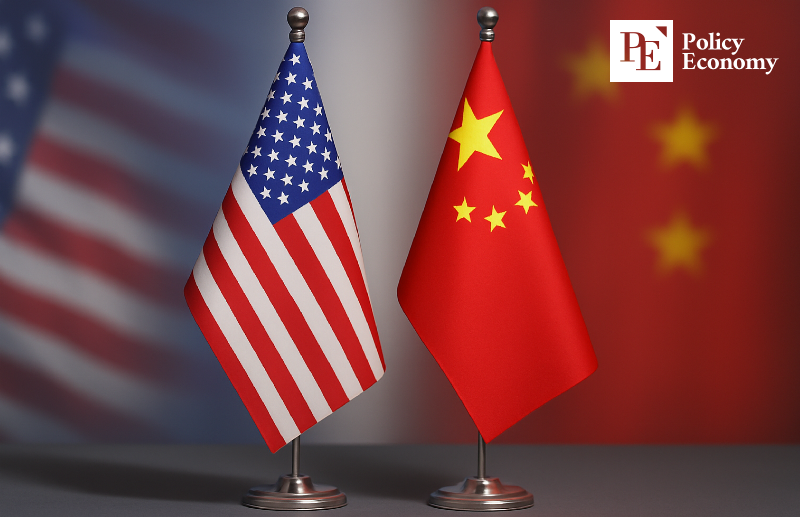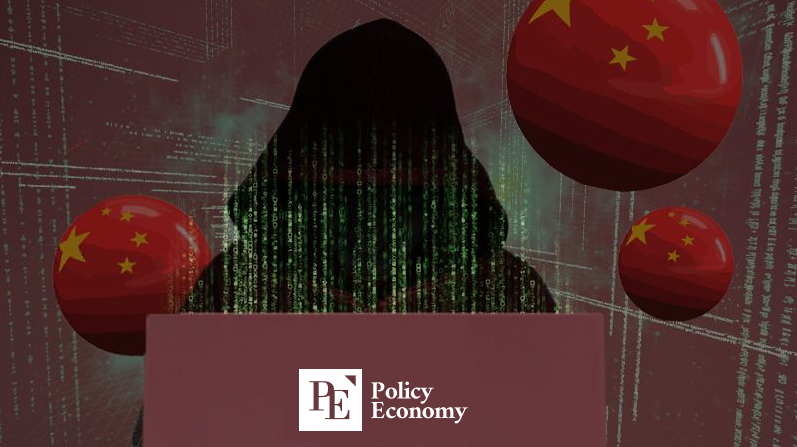Student Visas for Chinese Nationals Canceled to Block Spies — Trump’s Hardline Policy Criticized as 'Self-Destructive'
Input
Modified
Spy Label Deals a Blow to U.S. Education and Research Fighting Espionage or Excluding Talent? The Strategic Paradox of Anti-China Policy Behind the ‘National Security’ Justification: Fears of Innovation Suppression

In the Trump administration’s escalating effort to shield national secrets and curb foreign influence, Chinese students and scholars in the U.S. have become central targets. With sweeping visa cancellations underway, justified by fears of espionage, critics warn the administration’s tactics may be inflicting more harm on U.S. interests than the threats it aims to contain. Experts, academics, and policy analysts across the country have voiced concerns that this overcorrection risks sabotaging America’s own scientific ecosystem—built for decades on international collaboration, particularly with Chinese talent.
What began as targeted responses to confirmed espionage has evolved into what some now call a campaign of “self-destruction.” The exclusion of nearly 300,000 Chinese students, many of whom are vital contributors to American research, may erode the very openness and innovation that have long defined the U.S. academic and technological landscape.
Mass Visa Cancellations Seen as Overreaction by Security Experts
According to a South China Morning Post report on June 4, the U.S. State Department has quietly canceled a large number of visas issued to Chinese students, intensifying educational restrictions to unprecedented levels. The Trump administration claims the crackdown is a necessary shield against espionage. Yet national security experts warn it may instead be a blunt instrument with dangerous side effects.
The New York Times reported on May 31 that some of the very professionals who once investigated academic espionage believe the Trump administration's sweeping policy is poorly calibrated. Former FBI counterintelligence official Greg Myllonovich explained that the actual number of Chinese students posing credible national security threats is negligible compared to the vast majority who enhance U.S. scientific development. “The number of threats is vastly outnumbered by those who support and advance American research,” he noted.
As of last year, nearly 277,000 Chinese students were enrolled in U.S. institutions, second only to Indian students. These students often occupy research labs, graduate programs, and innovation hubs across disciplines—particularly in STEM fields. But rising fears that their presence could aid the Chinese Communist Party in siphoning off American technology have ignited a sweeping policy response, one that many believe lacks nuance and threatens U.S. progress.
Hong Kong-based China analyst Professor Kong Haofeng warned that even during the Cold War, the U.S. maintained scientific engagement with the Soviet Union, though with careful safeguards. “Blanket halts like these only serve to hinder the United States,” he said, emphasizing that selective security screening is more effective than indiscriminate exclusion.
Adding to the criticism is the administration’s failure to clearly define who qualifies as a “security risk.” Secretary of State Marco Rubio announced on May 28 that the U.S. would “aggressively revoke visas” for students connected to the Chinese Communist Party or those involved in sensitive research. But no concrete criteria, assessment mechanisms, or appeals processes were disclosed, raising concerns about arbitrariness, overreach, and even racial profiling.

Confirmed Espionage Cases Add Complexity
Despite mounting criticism, the administration points to several high-profile cases as justification for its actions. Recent years have indeed seen Chinese researchers and students prosecuted for crimes ranging from data theft to unregistered work for the Chinese government. These incidents, officials argue, highlight the dangers of the Military-Civil Fusion (MCF) strategy—a Chinese policy that mobilizes civilians and academics abroad to support military objectives.
In 2023, the U.S. Department of Justice indicted 12 individuals of Chinese descent for espionage-related offenses. The defendants allegedly hacked into State Department systems and targeted American defense contractors—part of what officials describe as China’s “gray zone” tactics that blur the lines between peace and conflict.
One illustrative case is that of Tang Wanjun, a Chinese-born U.S. citizen and former democracy activist. Arrested in 2023, Tang was accused of acting as an agent of China’s Ministry of State Security (MSS) while running a civic organization for Chinese dissidents. Prosecutors allege that Tang passed sensitive information about fellow activists to MSS in exchange for support that would allow him to reunite with his family in China. He was indicted in federal court on charges of conspiracy, false statements, and acting as an unregistered foreign agent.
Court documents revealed that Tang had been jailed in China after the 1989 Tiananmen Square massacre, later fleeing to Taiwan and then the U.S., where he was granted political asylum. His return to working with Chinese intelligence reportedly began in 2018, after a family visit to China led to his recruitment by MSS agents. Tang’s story illustrates how personal vulnerabilities and coercion may be weaponized in espionage networks.
Another significant case is that of Linda Sun, a longtime aide to former New York governors Andrew Cuomo and Kathy Hochul. In September 2023, she was arrested on suspicion of acting on behalf of the Chinese consulate to obstruct Taiwanese diplomatic efforts in New York. A Columbia-educated political aide, Sun was accused of intercepting invitations, misrepresenting officials’ schedules, and subtly influencing public discourse—including reportedly preventing New York state officials from discussing the mass internment of Uyghurs in China.
These espionage cases complicate the narrative. While they confirm that genuine threats exist, experts argue they do not justify broad-brush policies targeting entire populations. Instead, they highlight the need for precision tools and investigative rigor—qualities many believe are absent in the current visa revocation campaign.
Wider Suspicion of Chinese Researchers Raises Concerns in Academia
Perhaps the most controversial figure to emerge from this geopolitical rift is Professor Charles M. Lieber, once a towering figure in American nanoscience. A former Harvard chemistry chair and pioneer in nanomedicine, Lieber was indicted in 2020 for concealing ties to China’s “Thousand Talents Plan” and failing to report over USD 2.1 million received from Wuhan University of Technology. He was found guilty and sentenced to house arrest and probation in 2021.
In a symbolic turn of events, Lieber has since resurfaced in China. On May 1, the Tsinghua Shenzhen International Graduate School announced that he would join its faculty as a research professor. He will also hold an appointment at the Shenzhen Institute of Translational Medicine. “I am ready to begin a new research journey and eager to get started,” Lieber stated. In a prior interview, he expressed interest in working in mainland China or Hong Kong and hoped to contribute to global science in a collaborative setting.
Lieber’s case continues to polarize observers. Some argue his financial ties and secrecy merited punishment. Others view his prosecution as politically charged and his recent appointment as part of a broader trend: U.S.-trained talent leaving the country under suspicion and disillusionment. Regardless, Lieber’s presence at Tsinghua underscores the real risk of American intellectual capital flowing overseas—sometimes directly into the hands of geopolitical competitors.
But beyond Lieber’s personal saga lies a larger issue—the growing climate of distrust toward all Chinese researchers and students. Experts warn that such collective suspicion amounts to guilt by association, fostering a hostile environment in universities and labs. The notion that simply being Chinese is grounds for scrutiny violates academic freedom and due process, clashing with American liberal values.
As the Trump administration’s hardline policies persist, critics worry the U.S. may be isolating itself in an increasingly interconnected scientific world. National security must be protected, they acknowledge—but not at the cost of driving away the very minds that help America lead in science, medicine, and innovation.





















